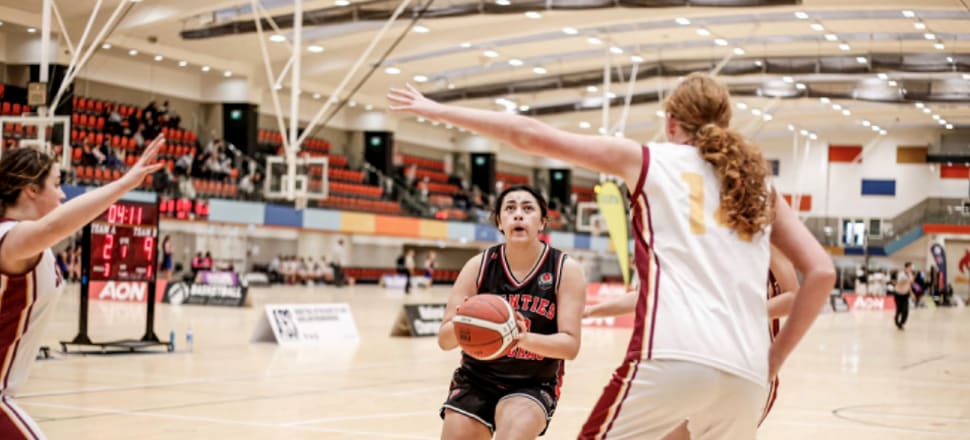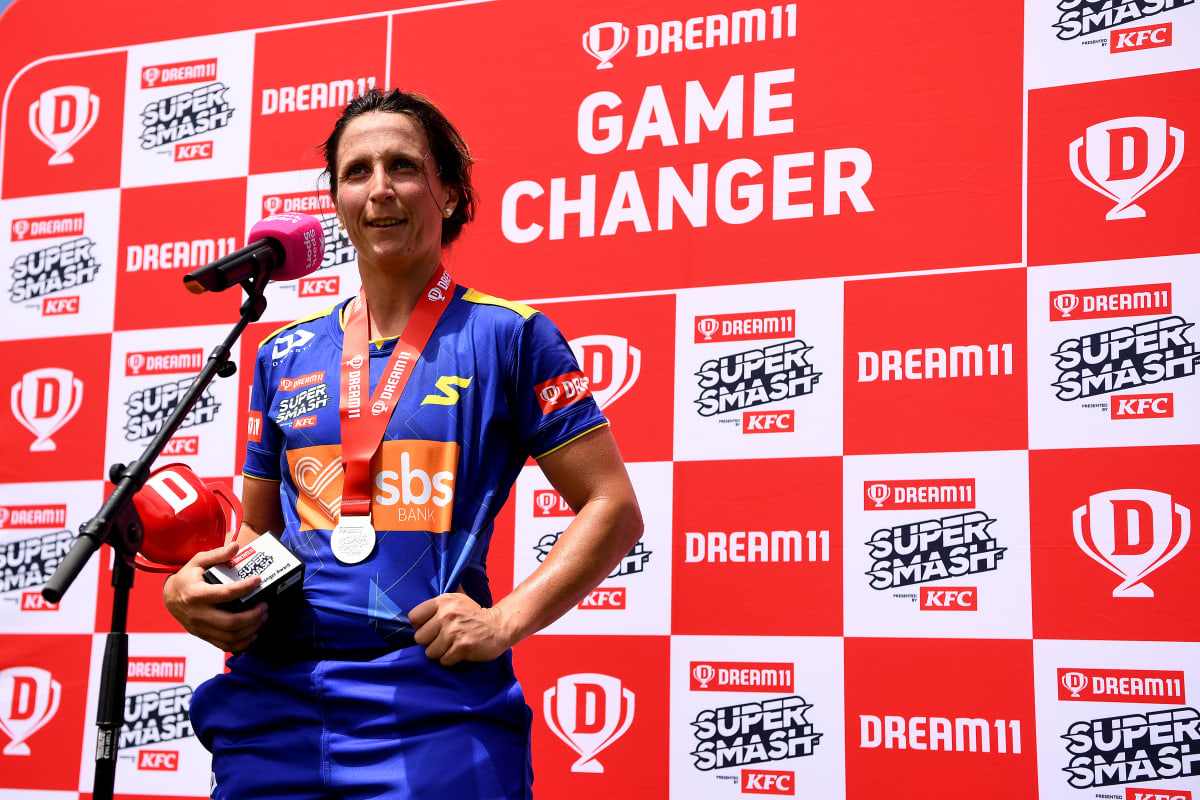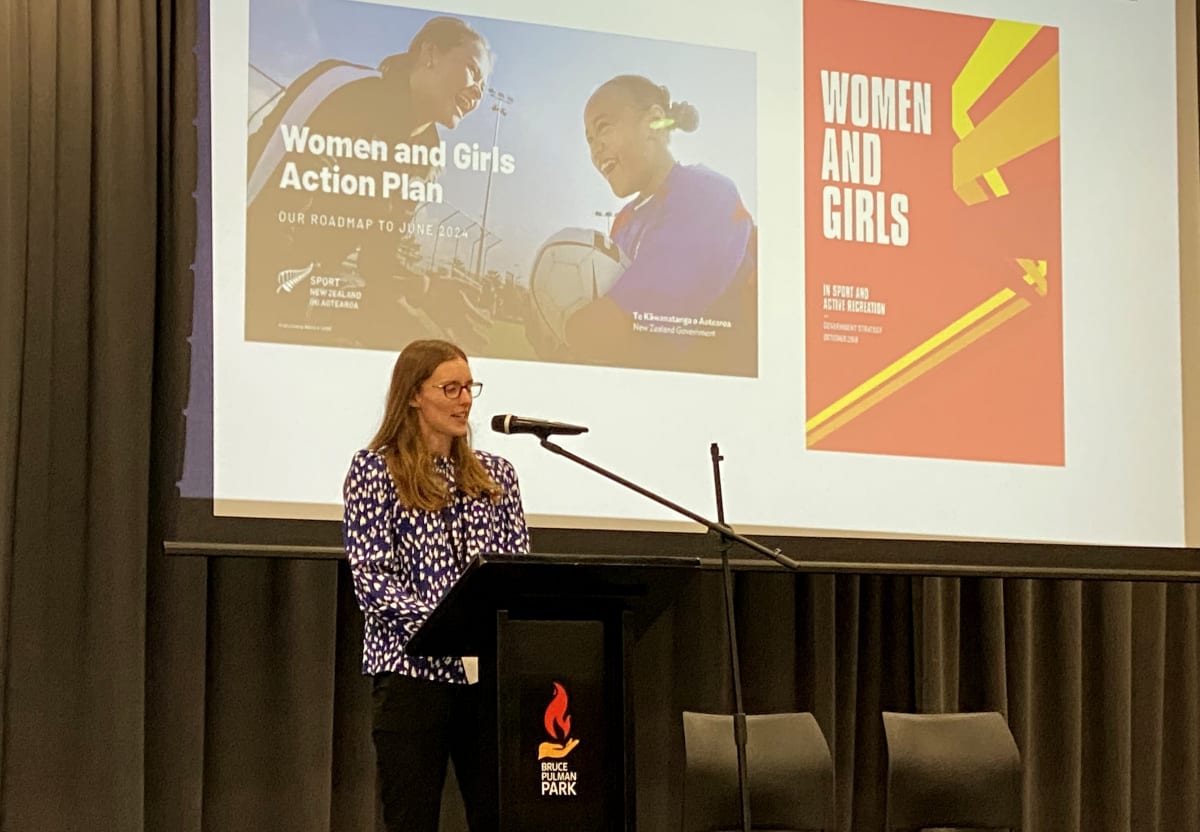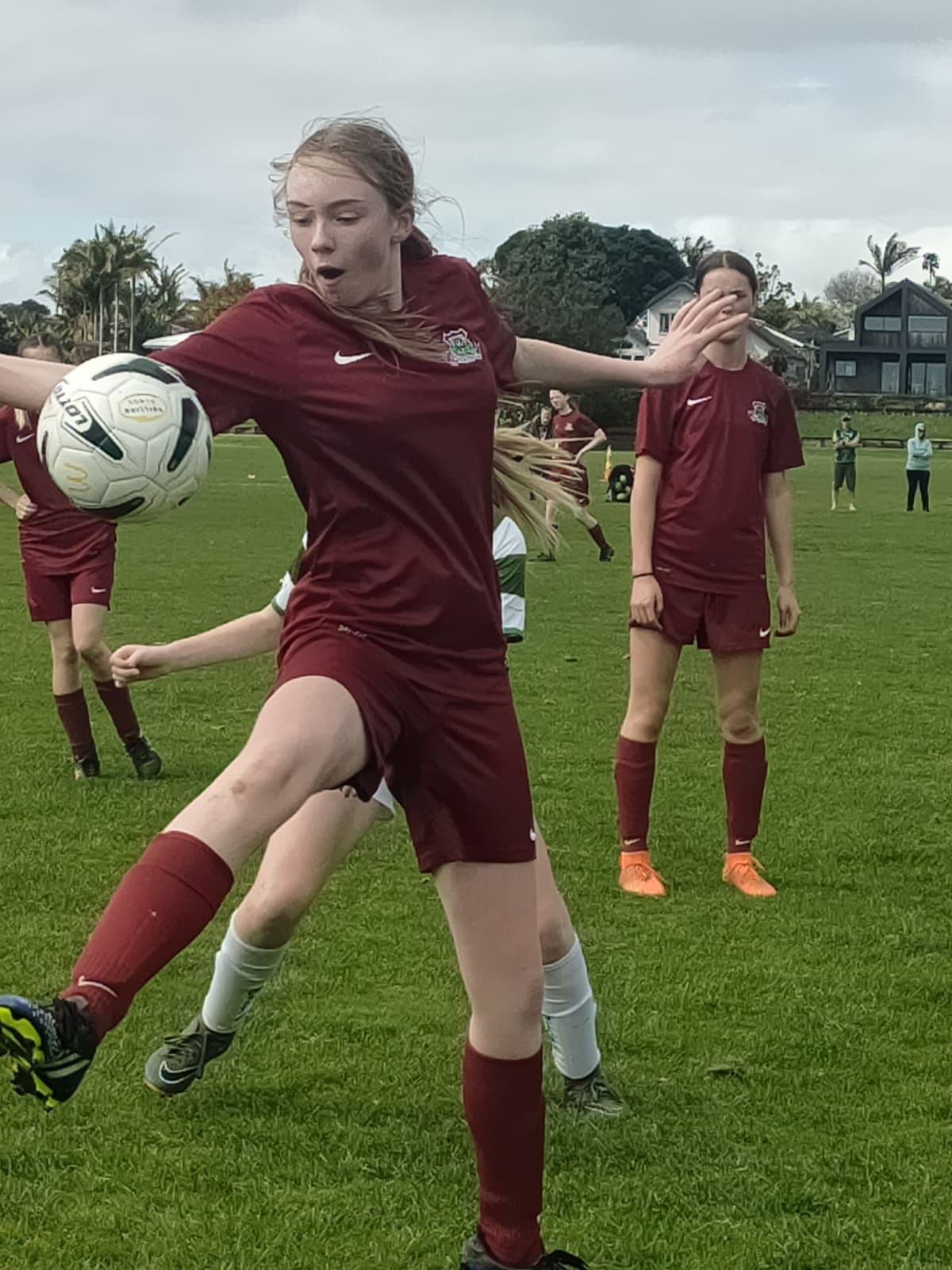
It's time to normalise conversations around periods to help young women feel comfortable playing sport - that's the goal of the Flow on Effect initiative. Suzanne McFadden talks to wāhine aiming to make a difference in athletes' health and wellbeing.
“It’s an uncomfortable journey we all need to be comfortable with.”
It’s a journey Kate Ebrahim - White Fern cricketer, Canterbury rugby player, teacher, coach and mum - is now well into. But she’s in the process of taking young women with her.
Ebrahim is talking about female athlete health – and the need to talk more about it. Removing the stigma around menstruation, normalising discussions around periods and giving coaches the tools to better understand the physical development of young women.
“We're all uncomfortable talking about it but we need to start getting comfortable about it. I guess that happens over time through changing the language we use, changing the conversations we have and increasing awareness,” says Ebrahim, last year’s Otago Sparks cricketer of the year.
“Even in the high-performance environments I'm currently in, it's still a very shallow area. It's not normalised yet - especially with the younger age group, which is alarming. But I can see sports are now trying to normalise it.”
Ebrahim's personal philosophy is in sync with The Flow On Effect – a new initiative by Sport New Zealand to 'kick-start the conversation' around female health, menstruation and physical activity, especially in communities.
It comes off the back of last month’s FIFA Women’s World Cup played in New Zealand, and is part of the government’s leverage and legacy programme to get more young women physically active. In this case by increasing education around female health, reducing period anxiety, and addressing period poverty.
As well as being a top athlete, Ebrahim works with many young women who would benefit from these conversations - she’s a teacher at Belmacewen Intermediate in Dunedin, she’s coaching the St Hilda’s Collegiate 1st XI girls cricket side and working with the Otago women’s rugby team in the Farah Palmer Cup.

Ebrahim, who had daughter Sophia three years ago, says it’s a serious oversight that female health and wellbeing hasn’t been treated as a priority in sport – from grassroots through to high-performance level.
“We talk about strength and conditioning as being a priority and we put so much time and emphasis on skill and tactical development,” she says. “Yet our health is the driver of our bodies - and if we're not even touching on what’s happening with our bodies, we’re running into trouble. And that can be trouble now, or later in life when we want to start families.
“With my teacher’s hat on, we educate our girls early on in schools around puberty, but then the conversation goes on hold. You can't assume that our athletes know everything about their bodies - there's no harm in relearning or refreshing as well.”
Ebrahim, who played rugby for Canterbury before her daughter’s birth, was the culture and leadership manager for the Otago Spirit women's rugby side in the Farah Palmer Cup this season and saw “recurring patterns” in some players' health. She knew something needed to be done.
“It alerted me these girls needed help and education, and that starts from being aware and then upskilling ourselves as management,” she says. She’s organised a workshop around women’s health through the University of Otago.
“I'm highly invested in this because I've been through it all.”
Ebrahim admits there was a lot she didn’t know about her body until she’d had her daughter. “Imagine the athlete I could have been if I’d known when I was much younger,” she says.
Kicking down barriers
Earlier this year, Sport NZ listened to young women talk about their fear of judgment and anxiety around their bodies.
“When you’re dealing with your menstrual cycle and trying to stay active, it can present a range of different barriers for young people,” Maddi McLean, the women and girls lead at Sport NZ, says.
“We want to give them some information that might help them on their journey. And hearing from the experiences of others is a really powerful way we can start to normalise conversations around our bodies and start to address that fear of judgment which can be a barrier to participation.”
During the FIFA World Cup, more than 250 students were part of the Hine o te Kura youth symposium in Auckland, with the goal to ‘change the game on menstrual inequity’.
“We realised the opportunity we had with the FIFA Women's World Cup to really leverage the platform that event provided and think about elevating a conversation around something that's not really talked about so often - to reduce some of the stigma around menstruation,” McLean says.

Sport NZ had already begun putting together their Flow On Effect initiative with the same purpose. Sports organisations were asking for resources they could use to educate around female health, especially at the community level. “And rangatahi are actually really interested in learning more about their bodies too,” McLean says.
The Flow on Effect now has an online site featuring resources, the voices of young women and their experiences with menstruation while keeping active, and a list of sports organisations already doing something about it.
A handbook for coaches, instructors and parents to better understand female health was borne out of a Netball NZ and ACC collaboration, then turned it into a “more broad and holistic” resource for community sport.
“We looked at the key things parents, coaches and instructors were asking questions about - puberty and development, the menstrual cycle, how we can be supporting young people's wellbeing whether it's physical, mental or social,” McLean says. She’s hoping the handbook will be adopted in schools, too.
They’ve also launched a video case study on NZ Cricket’s decision to ditch traditional white uniforms for female athletes, to make them more confident and comfortable to stay in sport. The Football Ferns are another example of a high-profile team, who switched to black and teal shorts for this year’s World Cup, and some had period leak protection integrated into the kit. That's now filtered down to club football sides.
“When I was playing hockey, we were often wearing light-coloured skirts,” McLean says. “And if you were on your period, you didn't want to be worried about leaking. It took your focus a little bit away from what you were out there to do, to go and play. So the positive shifts we're seeing in the move away from white and light-coloured uniforms will benefit the generations playing sport now as well as future generations."
Understanding ikura
Fifteen-year-old basketballer Fern Taiapa wants other girls to understand their period isn’t something to be embarrassed about.
“A lot of girls feel so whakama [shame], but it shouldn’t be this western point of view of hiding away when you get your period. All women get it and it’s something to be proud of,” says the Pukekohe High student who sees menstruation from a Te Ao Māori perspective, where it’s cause for celebration, not shame.

When she took up rowing, she decided to follow tikanga (traditional values) and stay off the water when she was on her period. “It’s part of my culture that when you have your ikura [period] you're not allowed on the water because the blood flow is tapu,” says Taiapa, who spoke to other students at the youth symposium.
“It was a really tough conversation to have with my coach, who’s a man. He was like ‘Oh, are you sure you're not just trying to get out of training?’ And I said, ‘No, sir. This is real serious’. He was actually super understanding and put me on the rowing erg for a week’s training off the water.”
Her decision brought up challenges – like getting her period while competing at a regatta. “There’s a fine line between playing your sport and your tikanga,” says Taiapa. “I ended up racing, but I felt real paru [yukky] afterwards.”
She’s now focusing on basketball, playing for the Counties-Manukau U17 side, and faces challenges in that sport too. “We’re so self-conscious of wearing like lighter colours - because sometimes you have to wear reversible [uniforms] – and you might leak through your shorts,” she says.
(A survey of 4000 British teenage girls last year revealed 78 percent of girls who used to be sporty admitted they avoided playing when on their period - three-quarters of them because of pain, while almost two-thirds feared leaking.)
Taiapa strongly believes education around ikura should start earlier in schools in Aotearoa. “I was fortunate enough to get my period at the age of nine, but I had no idea what I was doing. So I think the conversation should start in primary school,” she says.
“It’s still not an open conversation that people are having. All women get it – it something we all have in common - and all girls should just embrace it. I feel like it’s just another way women are a little bit oppressed. There's so much conversation that needs to be had about it.”
Bringing Flow on Effect to life
Across the road from Pukekohe High is the Pukekohe Football Club, where the Flow On Effect is about to take effect.
Celia Kavanagh’s daughter, Felicity, is football-mad and plays in one of the club’s two U14 girls teams. Kavanagh worked with Sport NZ during the FIFA World Cup on the leverage and legacy project, and wanted to see it “brought to life” at the community sports level.
“I wanted the legacy of the FIFA tournament to be more than ‘We went to some games, wasn’t it amazing?’ and see it make a tangible difference,” she says.

As owner of thinAir, a Kiwi company specialising in revolutionary oxygen therapy, Kavanagh decided to kit out both U14 girls teams with pairs of period underwear, and run a health and wellbeing session at the club.
“We want to use football as a vehicle to empower our rangatahi and wāhine to be active and look after themselves,” she says. “As a parent of a daughter who loves football, I don’t want to leave education, awareness of the different products now available, and the importance of being active and taking care of yourself, to chance.”
While there’s now a wider range of period products – like reusable period underwear, period cups, organic pads and tampons – cost remains an obstacle for some young women. So Kavanagh approached New Zealand brand AWWA, who make sustainable period-proof underwear, and she will donate three pairs to each of the U14 Pukekohe girls.
“It removes the cost barrier for these girls, and they can use the underwear through their cycle, be kind to their bodies and remove sanitary products from landfill,” Kavanagh says.
She sees the Flow on Effect as "a great conversation starter", that will change the attitudes of coaches and the outcomes for young women for the better.







